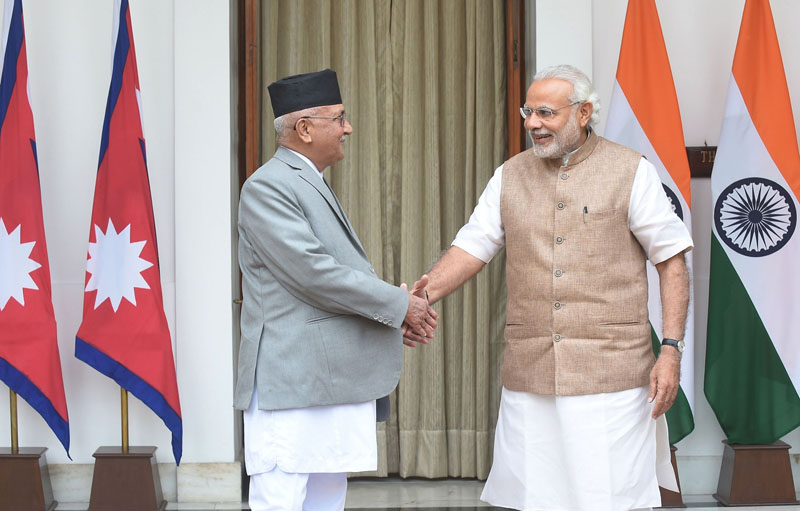LETTERS: Mutual trust
During PM KP Oli’s visit to India nine agreements were reached. The main issues included development of hydroelectric projects. India has shown great interest on Nepal’s abundant water resources. The development of hydropower project could be beneficial for both the countries. But one of the biggest problems that lie ahead is the timely execution of any bilateral hydel project. Pancheshwor Project is a case in point which could not kick start even 18 years after its signing. While receiving the visiting Nepali PM Indian PM Narendra Modi said that hydropower projects will not only provide energy to Nepal but also to India. But we need to make huge investment to harness the clean energy projects. If we are able to construct the Pancheshwor Project on time Nepal can sell its surplus energy to India at a competitive price and the surplus water to be augmented can also be used for irrigation purposes for both the countries. But what we need to do is to build a mutual trust at the political and bureaucratic level. During his visit, PM Oli raised the issue of Pancheshwor Project due to which his party had split in 1996.
Ashish Neupane, via e-mail
Medicinal value of parijat
Nyctanthes arbor-tristis is better known as shefali in Sanskrit, shiuli in Bengali and parijat in Nepali. This soul-touching flower with its snowy white petals and orange or red centre is called the queen of night as it prefers the silence of the night to bloom. However, its tree is known as the tree of sorrow as its delicate flowers fall to touch the ground at the stroke of dawn much like the falling tear drops. I remember an incident when I was a child. My mother was crying silently and she could not eat anything that day when a parijat tree near our house was chopped off. The Mother of Pondicherry identified parijat flower as the flower of aspiration. Here aspiration is the call of the being for higher things - for the Divine. In the words of Sri Aurobindo “Aspiration should be not a form of desire, but the feeling of an inner soul’s need, and a quite settled will to turn towards the Divine and seek the Divine”. Since, parijat is the embodiment of aspiration that may be the reason why we do not hesitate to pick up the flowers from the ground to offer them to God. Its sweet fragrance in the air, kash flowers and milky white happy-go-lucky clouds in azure sky are associated with the autumnal festivities of Bengal. Besides, its spiritual and surreal significance, it has tremendous medicinal value. It is used for the treatment of anxiety, restlessness, headache, gastritis and hepatitis. Parijat leaves are used for the treatment of ringworm, arthritis, fevers, pain and skin problems. Its taste is bitter but it has antibacterial and a anti inflammatory compound.
Sujit De, Kolkata






